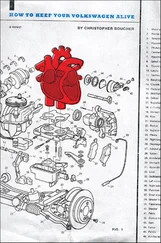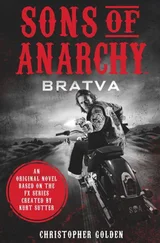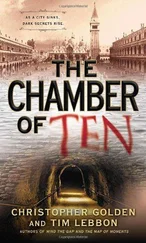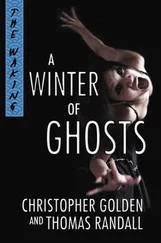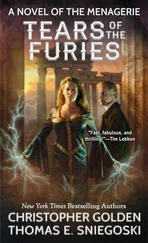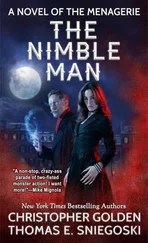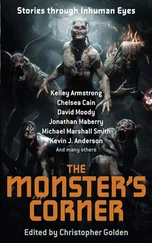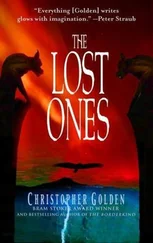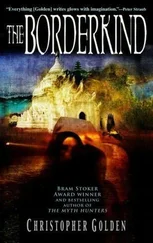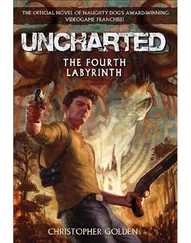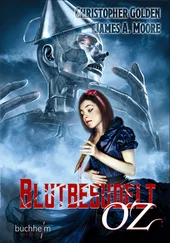“So it’s my fault we ended up here?” I said.
“It’s no one’s fault ,” my Dad said. “We’d just been praying for so long for you to speak. We took this as the reply.”
It was another two hours of house-traffic before our house actually crossed the line into town. My Dad steered us past sentences about schools, a town hall, a town green, a small downtown, an amphitheatre, and long stretches of wilderness.
“And apple trees everywhere,” my Dad said, turning onto the old dirt road where The Ear’s shack stood. “So many different kinds!”
“There are different kinds of apples?” I said.
“ ’Course there are,” he said. “Dozens. Don’t you remember?”
I shook my head.
As my parents steered the house through the town, though, they became discouraged: there were plots available with FOR SALE signs on the lawns, but all of them cost far more meaning than my parents could borrow. It wasn’t until they drove the house over to the Northeast Side — down Bliss Road, past Laurel Brook, and onto Converse Street — that they started to see houses in their range of meaning. The houses in that corner were shabbier, my Dad said: one had a stain on its pants; another drank from a bottle wrapped in paper.
On the far corner of that street, right across from some worryfields and the margin, was a plot marked forty thousand truths. It was the smallest piece of available land in Appleseed — the house had to scrunch up its elbows to fit on it — and still it was more meaning than my parents could afford. But that was the best option, my Dad said; it was there or back into the month-to-monthing in the margins. So my Dad picked up the FOR SALE sign, drove the house to Appleseed Town Hall and signed a Promise of Truths with an interest rate of thirty percent.
“There — Ear’s abode,” my Dad said, pointing to a wooden shack with a dirt driveway. “Now let’s see if he’s home.”
“What does that mean, thirty percent?” I said.
My Dad pulled into the driveway and honked the horn. “It means,” he said, “that if you borrow ten ideas, you pay back thirteen. If you borrow twenty? Pay back twenty- six .”
“Holy crap,” I said.
The Ear came out of his shack. He looked older than I remembered him; he had lambchop sideburns and some sort of skin irritation. “Ralph,” he said. He peered into the cab. “Bring your assistant with you?”
“Teaching him the business,” my Dad said.
“Oh yeah?” The Ear turned to me. “Going to be a landlord, like your Dad?”
“I’m going to be a movie person,” I told him.
“Hoping I could borrow your steth,” my Dad said to The Ear.
“Two-meter?”
“Four,” said my Dad.
The Ear motioned for us to follow and we stepped out of the truck. The Ear led us into the shack. There was all sorts of recording equipment inside: tape decks, microphones, wires, and dozens of other devices I couldn’t identify.
“Let’s see here,” The Ear said, searching in a closet. “Ah.” He lifted up a black plastic case. “Four-meter steth,” he said.
On the way back home, I asked my Dad more about the debt. “Weren’t you worried about paying all that meaning back?” I said.
“Of course I was,” he said. “I still am — I worry about it every day. But we didn’t want to live on the margin anymore. Don’t you remember what that was like? Moving every few months? Not really ever having a home?”
I shook my head. “I don’t remember that.”
“We just wanted a good place for you and your sister to grow up.”
“How much do you owe on the house now?”
“All told, about a hundred thou,” he said.
“Seriously?” I said.
“At the time, though, I didn’t care about the meaning. I was just happy that you were out of the voice box. You just kept running around the house, saying ‘Appa-seed,’ ‘Appa-seed.’ You sang it like a song! I would have paid any amount of meaning to see you that happy,” my Dad said.
Because of the Vox, I couldn’t walk correctly for another two years; I had to wear braces on my legs to keep them straight. I remember trying to hobble through the yard, how tired my legs would get. When he had time, my Dad would take me for walks around the block to strengthen my ankles and knees.
If he was at work or busy, my sister and I would play in the yard. She’d run around with her friends on the grass while I sat in the dirt and dug holes in the page. Before we moved to town, I don’t think my parents knew that most of the towns in the county dumped their deadwords in Appleseed, or that the soil was filled with dead language. I’d find all sorts of interesting bugs and deadwords there: commas, semicolons, fragments, wordbones, and other carcasses. My thoughts didn’t know to be worried — they didn’t understand that these vots were once as alive as the wild sentences you’d see across the street in the white woods of the margin, hopping from tree to tree. How was I to know that worry could manifest and worm its way into your mind? I couldn’t even read yet!
One day, I found a deadcomma and took it over to my Mom. It was her day off from work, and she was sitting in a lawn chair, a book on her lap, a six-foot cigarette sticking out of her mouth. My sister was outside, too — sanding a wooden clock on the patio — while my father stood on a ladder, fixing a gutter.
“Appa,” I said to my Mom.
“Shhh, honey,” my Mom said to me, without looking up from her book.
You never knew with my Mom. Some days her eyes held calm seas, but others — like that day — they held storms.
I offered her the muddy comma — I’m sure it smelled terrible. “Appa,” I said again.
“Uh-huh,” my Mom said.
I put the comma on the page of my Mom’s book.
“Oh, shit ,  ,” my Mom said. “Ralph!”
,” my Mom said. “Ralph!”
“Appa,” I said.
“What?” my father said from the ladder.
“Look at what  is playing with,” she said, standing up and shaking the comma off the book. She pointed to it on the ground. “He found this in the yard , Ralph. A fucking comma carcass, for Christ’s sake!”
is playing with,” she said, standing up and shaking the comma off the book. She pointed to it on the ground. “He found this in the yard , Ralph. A fucking comma carcass, for Christ’s sake!”
“Can we not swear?” my Dad said, climbing down the ladder.
I picked up the comma and walked over to him on weak legs. “Appa,” I said to him.
“Do you know how many diseases that thing has?” my Mom said.
“Put that down,  ,” said my Dad. “Those can make you sick.”
,” said my Dad. “Those can make you sick.”
“Wash  ’s hands,” my Mom spat, and stormed inside.
’s hands,” my Mom spat, and stormed inside.
My Dad led me over to the spout and held my hands under the freezing cold water. My Mom appeared at the kitchen window. “Did you wash his hands?” she shouted.
“Yes,” he said.
“Are they clean?”
“Yeah,” my Dad said.
Then my Dad led me to the back door. He tried to open it, but it was locked. “Door’s locked,” my Dad said.
Smoke billowed through the screen and up the side of the house.
“Diane,” my Dad said.
My Mom stared out the kitchen window at us.
“Open the door,” my Dad said.
My Mom took a drag on her cigarette.
I was a badseed — I knew that from the very first pages. I just couldn’t be good, no matter how hard I tried. I remember, at six or so, making a trueheart sentence-gift for my Mom on the lawnpage. In the time that it took for me to go get her and bring her outside, though, the sentence changed. She read it and said, “You loaf me?”
Читать дальше
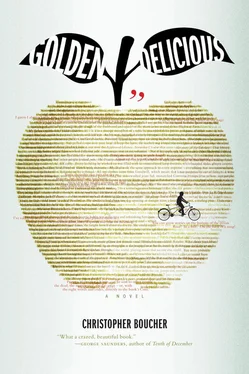
 ,” my Mom said. “Ralph!”
,” my Mom said. “Ralph!”
